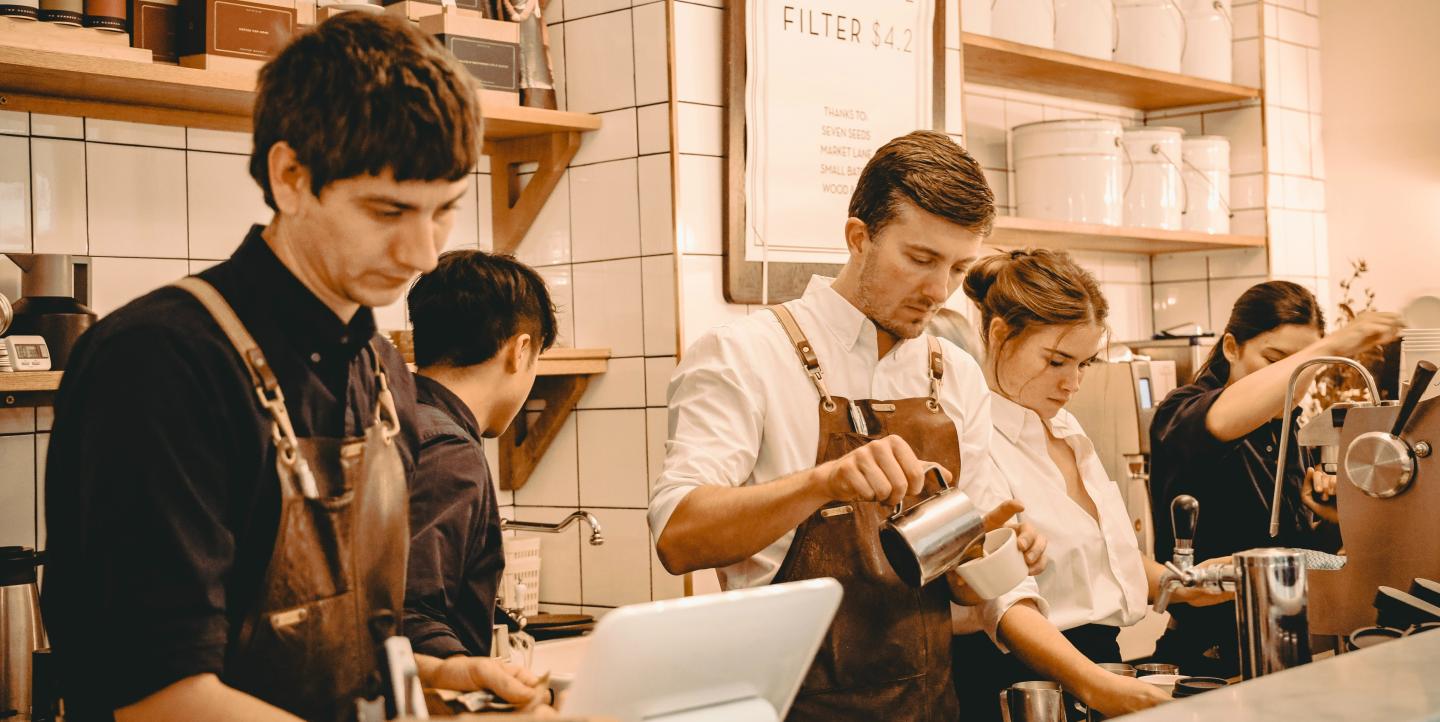It's no secret that the media industry has many diversity issues to address, among them a class problem. Journalism schools remain prohibitively expensive in many countries, costing tens of thousands of dollars in the U.S., for example, and in the U.K. only 10% of journalists come from a working-class background.
On top of this, most media jobs are based in big, expensive cities. With a declining employment rate and poor salary prospects, many who cannot rely financially on family need a different occupation to make ends meet, especially as they build experience through unpaid or underpaid newsroom gigs.
"A lot of people work 12-14 hours a day when they are at university or just starting in their [journalism] career, [doing] an internship in the day and then working in a bar at night," said Michele Theil, a London-based freelancer who worked in hospitality for a few years.
This aspect of working in media is not often talked about. Perhaps because any non-media job can feel irrelevant, as California-based reporter and freelance writer Elsa Cavazos said: “Maybe some journalists, myself included, might disregard any other work experience because it was not their ‘dream job.’” Cavazos is grateful to have previously worked in multiple retail shops and roles outside of journalism, though she doesn't often talk about the experience because it has little to do with her future goals.
U.K.-based freelance journalist Adam England pointed out: “The media industry remains a very upper-middle-class environment in which those at the top tend to follow the same pattern of private school to university to media job. This sort of trajectory is normalized, and I feel this makes it perhaps more difficult for people who've worked outside of the media to really talk about their experiences.”
Non-media experience can be a valuable asset, however. Jenna Farmer taught in secondary schools for eight years before launching her freelancing career, focusing on writing about parenting and health. Her background in education has helped her shape story ideas, and today she runs the motherhood magazine mumernity.co.uk, and has bylines at The Independent, Mother and Baby, Happiful and The Telegraph, despite having no formal journalism degree. "There's more than one route into journalism — and it doesn't have to involve interning!" she said.
Cavazos, England, Farmer and Theil have all worked outside of the media industry in the past. They have found it helpful for connecting with people, broadening their perspectives, building empathy, and articulating stories in a more straightforward and accessible way. The experience has even helped them understand if journalism is their calling or not. I asked them to explain precisely how they’ve benefited from these roles, and rounded up some inputs.
Strengthening interviewing skills
Any customer-facing role involves talking to people, defusing potentially stressful situations, and establishing connections. This can help with conducting interviews, vox pops, or even just messaging or emailing someone out of the blue for stories.
“A really important skill for journalists to have is being able to ask insightful questions, being able to build off of what your [sources are] saying, and also just making them trust you enough to open up and talk to you,” said Theil. “It's also a really good skill to learn when people are rude and don't want to talk to you because you're going to encounter that in journalism as well.”
Building resilience
Whether while pitching or applying for jobs, rejection is common in journalism. Dealing with difficult people in customer service, retail and hospitality can help you build a thick skin for these scenarios.
“When someone is angry that their drink is made wrong, or that it took a long time to make, and they're yelling at you – that helps you build that resilience for when you get rejected from a job or a pitch, or when you're not getting into journalism as fast as you would want,” said Theil. “You can't let it get to you because you wouldn't function, otherwise.”
Experiencing diverse realities
The media can sometimes look like an industry full of out-of-touch people. But, as England knows first-hand, many journalists have worked a job they might not particularly enjoy for minimum wage or just above. "Looking for agency work, getting up early every morning before school to deliver newspapers — these are all things that many people do or have done, and people in the media industry can sometimes forget that it's not always easy for a lot of people," he said.
These experiences have influenced the topics and issues he covers: "I think I'm a more well-rounded journalist for having worked other jobs."
Making stories more accessible and relatable
In her previous teaching job, Farmer got used to explaining complex concepts in simple ways to students. "This has come in very handy when I've had to explain things like scientific studies [when] writing about health and nutrition," she said. It made her more reflective, too: “Being a teacher, you're constantly asking: ‘How could I have communicated this better? How could I have taught that in a clearer way?’ [which] really helps.”
Theil added that having a range of work experience can help you understand different backgrounds and communities, and report more accurately and clearly. "It helps you build [empathy] and write better because you're not trying to use convoluted words like you would in an essay at university,” she said.
Never turning opportunities down
Cavazos’ experience working retail jobs and assisting a Christmas tree decorator in the past has helped her improve her interpersonal skills, become less afraid to seize opportunities, and learn never to turn down any task she is given.
"I feel like these skills have helped me in journalism to never say no to any story that is assigned to me," she said. "Also, I am not the best at taking photographs, but I would never say no to taking them."
Photo by Camille Chen on Unsplash.


